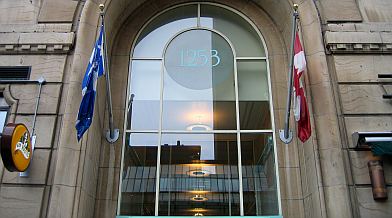ReAdings in  motivation
motivation
| Citation | Course |
|---|---|
| Ames, C. & Archer, J. (1988).Achievement goals in the classroom: Students learning strategies and motivation processes. Journal of Educational Psychology, 80, 260-267. | Motivation in Learning & Performance |
| Bandura, A. (1977). Self-efficacy: Toward a unifying theory of behavioral change. Psychological Review, 84, 191-215. | Motivation in Learning & Performance |
| Covington, M. V. (1984). The self-worth theory of achievement motivation: Findings and implications. The Elementary School Journal, 85, 5-20. | Motivation in Learning & Performance |
| Dweck, C., & Leggett, E. (1988). A social-cognitive approach to motivation and personality. Psychological Review, 95, 256-273. | Motivation in Learning & Performance |
| Graham, S. & Hudley, C. (2005). Race and ethnicity in the study of motivation and competence. In A. Elliot & C. Dweck (Eds.), Handbook of competence and motivation (pp. 392-413). New York: Guilford. | Motivation in Learning & Performance |
Heine, S. (2007). Culture and motivation: What motivates people to act in the ways that they do? Handbook of cultural psychology (pp. 714-733). New York, NY: Guilford Press. |
Motivation in Learning & Performance |
| Lepper, M. R., Greene, D., & Nisbett, R. E. (1973). Undermining children's intrinsic interest with extrinsic reward: A test of the "overjustification" hypothesis. Journal of Personality and Social Psychology, 28, 129-137. | Motivation in Learning & Performance |
| McCombs, B. L., & Marzano, R.J. (1990). Putting the Self in Self-Regulated Learning: The Self as Agent in Integrating Will and Skill, Educational Psychologist, 25(1), 51-69. | Motivation in Learning & Performance |
| Muis, K. R., & Foy, M. J. (2012). The effects of teachers beliefs on elementary students beliefs, motivation, and achievement in mathematics. In L. D. Bendixon & F. C. Feucht (Eds), Personal epistemology in the classroom: theory, research, and implications for practice. Cambridge University Press. | Motivation in Learning & Performance |
| Murphy, P., & Alexander, P. (2000). A motivated exploration of motivation terminology. Contemporary Educational Psychology, 25, 3-53. | Motivation in Learning & Performance |
| Pajares, F. (1996). Self-efficacy beliefs in academic settings. Review of Educational Research, 66, 543-578. | Motivation in Learning & Performance |
| Pintrich P., & Zusho, A. (2001). Motivation in the second decade of life. In T. Urdan & F. Pajares (Eds.), Adolescence and education: General issues in the education of adolescents. (pp. 163-200). Charlotte, NC: Information Age Publishing | Motivation in Learning & Performance |
| Pintrich, P. R., & Zusho, A. (2002). The development of academic self-regulation: The role of cognitive and motivational factors. In A. Wigfield & J. S. Eccles (Eds.) Development of Achievement Motivation (pp. 249-284). San Diego, CA: Academic Press. | Motivation in Learning & Performance |
| Reynolds, R. E., Sinatra, G. M., & Jetton, T. L. (1996). Views of knowledge acquisition and representation: A continuum from experience centered to mind centered. Educational Psychologist, 31, 93-104. | Motivation in Learning & Performance |
| Ryan, A. M. (2001). The peer group as a context for the development of young adolescent motivation and achievement. Child Development, 72, 1135-1150. | Motivation in Learning & Performance |
| Ryan, R. M., & Deci, E. L. (2000). Self-determination theory and the facilitation of intrinsic motivation, social development, and well-being. American Psychologist, 55, 68-78 | Motivation in Learning & Performance |
| Schraw, G. & Lehman, S. (2001). Situational interest: A review of the literature and directions for future research. Educational Psychology Review, 13(1), 23-52. | Motivation in Learning & Performance |
| Turner, J. C., & Patrick, H. (2008). How Does Motivation Develop and Why Does It Change? Reframing Motivation Research. Educational Psychologist, 43(3), 119-131. | Motivation in Learning & Performance |
| Weiner, B. (1985). An attributional theory of achievement motivation and emotion. Psychological Review, 92, 548-573. | Motivation in Learning & Performance |
| Wigfield, A., & Eccles. J. (2000). Expectancy-value theory of motivation. Contemporary Educational Psychology, 25, 68-81. | Motivation in Learning & Performance |
| Wlodkowski,R.J.(2008).Building motivational strategies into instructional designs. In R. J. Wlodkowski (Ed.), Enhancing adult motivation to learn: A comprehensive guide for teaching all adults (pp. 377-444). San Francisco: Jossey-Bass. | Motivation in Learning & Performance |
| Wolters, C. (2003). Regulation of motivation: Evaluating an underemphasized aspect of self-regulated learning. Educational Psychologist, 38, 189-205. | Motivation in Learning & Performance |
| Wolters, C., Yu, S., & Pintrich, P.R. (1996). The relation between goal orientation and students’ motivational beliefs and self-regulated learning. Learning and Individual Differences, 3, 211-238. | Motivation in Learning & Performance |
